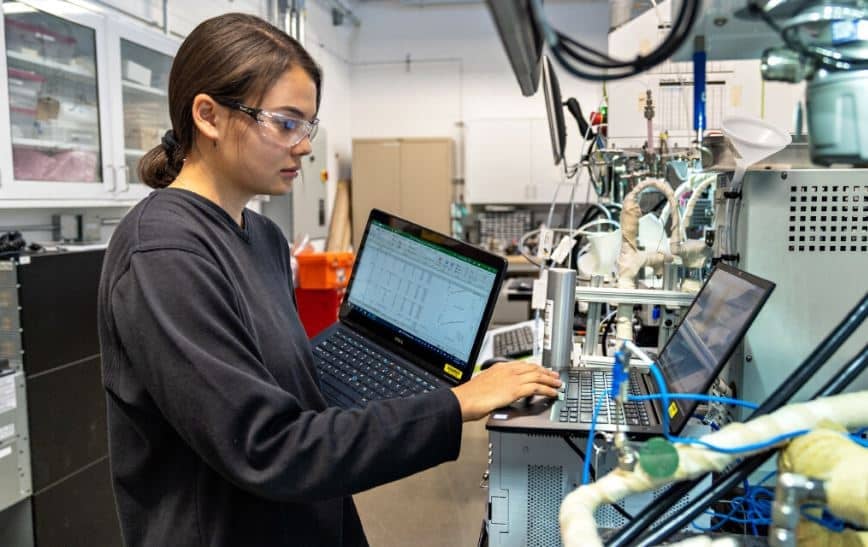DOE Awards $42M in Funding to Boost Clean Hydrogen

WASHINGTON — The Department of Energy on Monday awarded $42 million in funding for 22 projects in 14 states to advance technologies critical for producing, storing and deploying clean hydrogen.
At the same time, the department announced it is awarding another $17.8 million to establish a new North American university research consortium that will help states and tribal communities implement grid resilience programs and achieve their decarbonization goals.
“Today’s investments are a bold step in addressing some of our hardest to decarbonize sectors — heavy transportation and industry — by working directly with states and tribes to make hydrogen an available clean energy source,” said Energy Secretary Jennifer Granholm in a written statement.
“Thanks to President Biden’s Investing in America agenda, these bold investments are ensuring the U.S. leads the way in hydrogen technology and other clean energy solutions,” she added.
Clean hydrogen — which is produced with zero or next-to-zero carbon emissions — can leverage all our nation’s clean energy resources, including renewables, nuclear and fossil resources with carbon capture.
According to the Energy Department, it can also support the expansion of clean electricity by providing a means for long-duration energy storage and offering flexibility and multiple revenue streams to all types of clean power generation — including renewables, today’s nuclear fleet, advanced nuclear and other innovative technologies.
The 22 projects receiving funding Monday will develop technologies for solar fuels, created by harvesting sunlight.
In addition, they will demonstrate higher-density and lower-pressure hydrogen storage technologies, lower the costs of hydrogen fuel cells for medium- and heavy-duty transportation applications, and improve hydrogen-emissions detection and monitoring — addressing potential global warming impacts.
Projects selected to improve hydrogen emissions detection will supplement the department’s established and extensive work on hydrogen leakage, addressing community concerns about hydrogen emissions and safety, and they will advance the broader field of leakage detection and monitoring technologies.
The projects will be managed by the department’s Hydrogen and Fuel Cell Technologies Office and will also advance the Biden administration’s Hydrogen Shot goal of reducing the cost of clean hydrogen to $1 per 1 kilogram in one decade.
Stanford University will lead the university consortium announced Monday, which will include universities in Canada and Mexico in addition to those in the United States. Seven of the participating schools are “minority serving” institutions, the department said.
All will work to decarbonize and improve the resiliency of the electric power system and help states, tribes and regions develop the data, modeling tools, workforce and methods needed to implement programs to improve grid resiliency, establish decarbonization goals and prioritize investments to achieve those goals.
At the same time the consortium will place a heightened focus on work related to cross-border grid dependencies and electrical interconnections, the department said.
Dan can be reached at [email protected] and @DanMcCue

























